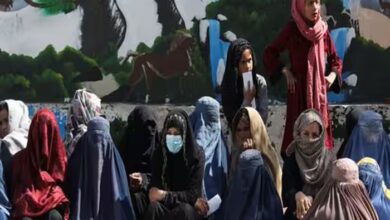The European Union has decided to further punish Iran in order to reduce its manufacturing of missiles and drones
A political consensus has emerged among the European Union to punish Iran for its recent bombardment of Israel by imposing harsher sanctions.

The European Union (EU) has imposed restrictions in an effort to limit the sale of parts needed to build drones and other unmanned aerial vehicles (UAVs), as well as ballistic missiles.
Iran has used drones manufactured by its own government to support Russia’s invasion of Ukraine. In the past, the bloc established a specific system to combat this threat. Dozens, if not hundreds, of Ukrainians have lost their lives as a result of the so-called “kamikaze” Shahed drones being used to attack residential structures and vital infrastructure.
In addition to imposing travel restrictions and asset freezes, the scheme has blacklisted individuals and organizations linked to Iran’s UAV development.
However, the European Union (EU) started working on a new set of restrictions to address missile manufacture and broaden the list of banned drone-related components after Iran launched an assault on Israel on April 13th, with more than 300 projectiles aimed at the Jewish country from various directions.
Foreign ministers met in Luxembourg on Monday to ratify this enlargement, and it will go into effect in the next days when the political agreement is codified into laws and officially authorized.
By the conclusion of the conference, High Representative Josep Borrell said, “We have reached a political agreement,” while also mentioning that the “potential transfer” of missile technology to Russia has not materialized.
Members of Iran’s proxies
With a stockpile of over 3,000 rockets and a range of up to 2,000 kilometers, Iran is believed to possess the biggest and most varied missile arsenal in the Middle East.
Isfahan is the site of missile manufacture, research, and development; last week, Israel allegedly attacked the area around the city.
Even while most of the production happens in Iran, the missile program still makes use of foreign-made technical parts that may be dismantled and used. To get critical dual-use items—items that can be used for both military and civilian purposes—and to avoid long-standing international sanctions, the government has created a complicated network of operators over the years.
Furthermore, Iran has sent deadly weaponry to its regional proxies, such as the sworn foes of Israel, the Houthis in Yemen, Hezbollah in Lebanon, and Hamas in the Gaza Strip.
The West was on high alert for a larger spillover after the onslaught on 13 April, which saw weapons fired from Iran, Iraq, Lebanon, and Yemen, caused widespread alarm.
By extending the limits to include the “whole region of the Middle East and the Red Sea,” as Borrell put it, the European Union sanctions that were agreed upon on Monday deal with this situation.
Despite the concept being considered since last year’s crackdown on anti-government protesters after the execution of Mahsa Amini, ministers did not take any steps towards designating the Islamic Revolutionary Guard Corps (IRGC) as a terrorist organization.
Is Your Company on the Cusp of a Revolution?
commercial produced by HP
Is Your Company on the Cusp of a Revolution?
However, a decision made by a competent body in one of the 27 member states must be obtained before such a designation may be implemented throughout the whole EU.






